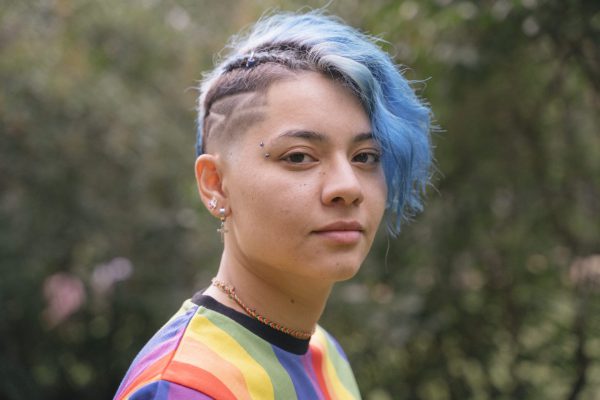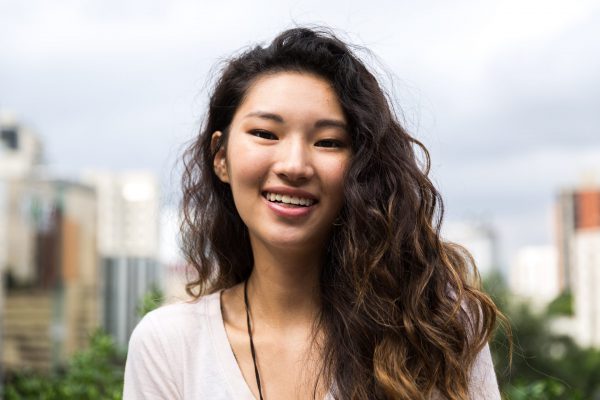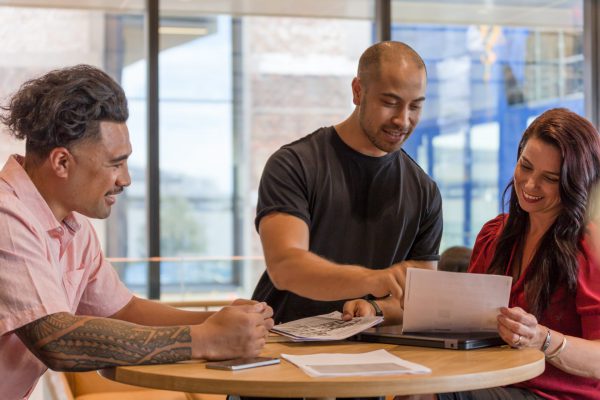Accept me
-
Being accepted for who you are
Being accepted by others for who you are can help you feel belonging. Participants shared how feeling accepted enables you to feel at ease. Acceptance can help you feel seen, understood, and welcome. These are common threads referenced by participants as part of their personal journeys - through gender identity; sexuality; migration; education pathways; family structures; work environments.
We just accept people for whatever they bring. It’s never been an issue for us (rainbow, disabilities) - we just accept how people arrive and try to be as inclusive as possible. Work with the strengths that people bring.
-
We just accept people for whatever they bring. It’s never been an issue for us (rainbow, disabilities) - we just accept how people arrive and try to be as inclusive as possible. Work with the strengths that people bring.
-
Being in a place where difference is celebrated, where I could be myself and didn’t have to fit with this thing or that thing.
-
I am just me. And that’s just fine.
-
Also, when something happens in the larger community e.g. the shootings in March; there were a lot of people who reached out to me as well even though I wasn’t Muslim. Because they knew I was different, wanted to make sure I was ok.
-
Interestingly everyone is accepted here even though “white stale pale male” is the typical profile. But everyone is accepted, even the overtly gay bikie at the pub; the cross-dressing lawyer; everyone. Why there is acceptance in the history, that it took all hands to build this town on a bed of rock. A very strong history of survival.
-
No one makes a big deal out of it at work. in my team, they can see if I am having a bad day or stressed [Tourette’s related]
-
It's empowering being with a big group of your tribe. They help you learn about self-advocacy tools e.g. wearing a hat "actually autistic" and feeling comfortable to do that.
-
A reminder that everyone brings with them a lifetime of wisdom, knowledge and skill. Everyone has literacy — everyone has skills and interests that will create the framework for their learning journey.
-
-
Others accepting your culture or religion
When your religion and culture are accepted by others who are different from you, it can support your sense of belonging. Participants spoke about how discussing their differences helped build understanding and connection. They also talked about how sharing language, food, rituals and beliefs can be a bridge. Some spoke about their journeys to becoming comfortable with their dual or multiple identities.
Belonging is when you meet people, whether the same or different faith, people feel belonging, if people don’t talk to each other, problems start to grow. There are events in Nelson with different groups and ethnicities, we feel we are all together.
-
Belonging is when you meet people, whether the same or different faith, people feel belonging, if people don’t talk to each other, problems start to grow. There are events in Nelson with different groups and ethnicities, we feel we are all together.
-
I was brought up in what was two cultures - one kiwi and one from India. Belonging to me has lots of different meanings. To not make it complex, I have lots of different belongings. My kiwi self who relates to all patriotic things in NZ, and also this longing to be aligned to my culture more.
-
My oldest girl is Māori-Samoan. She loves her Māori side, but now she is on the journey to discover her Samoan side. In fact, today, she and I are taking our first lesson in Pacifica language.
-
Once a woman brought nine Vanuatuan workers [to the dinner], and they sang for the group and they were so beautiful, they sang in harmony. There were tears – they felt so happy because they felt included. We were all so moved.
-
Coming to university here, people were very respectful about my hijab.
-
When we can wear our traditional clothes and nothing negative is said, and nothing is perceived as negative.
-
-
Feeling valued and able to contribute
Being able to contribute to something, and having your contributions acknowledged as valuable can support your sense of belonging. This could be through joining a group or workplace, supporting neighbours, or being part of a religious or cultural organisation. It is the opportunity to have your work acknowledged and to see how your contributions support others.
So with the people we support: a huge, huge need is that sense of belonging to their community, that they are valued.
-
So with the people we support: a huge, huge need is that sense of belonging to their community, that they are valued.
-
In my last job, for the last 2 years, I had a real sense of belonging there. I was in a support role working with disadvantaged communities. So was I really belonging? Or was it because I was supporting others that I felt I belonged?
-
Feeling like I have something to bring to the group makes me feel like I belong. But also that it’s received as valuable [ie that the thing you bring to the group has to be valued so you can feel like you belong].
-
It is about a community, each time you reinvent yourself, you have a different little community.
-
I feel like I belong when I feel respected; and you feel like you can bring your whole self.
-
Everyone who is on that marae is important, nothing can run smoothly if others are left out or don’t have a purpose for being there. Whether you are the kaikaranga [kuia who calls people onto the marae] or the kaikorero [the kaumatua who speak at the powhiri], you’re nothing if there are not the cooks, so they are just as important. That’s how that system works really well. They don’t bring anything; they just bring a potato peeler. You bring value.
-
I started with [establishing] a home for refugee women. It really enriched my life, opened me to different ways of thinking.
-
-
Accepting yourself
Accepting yourself and feeling confident in your identity can help grow your sense of belonging. Participants shared how they came to accept themselves and be confident in who they are. Some felt it begin with an innate, foundational place within themselves. Others spoke of personal journeys to self-acceptance. Many also shared how being around others like them helped.
An element of self-acceptance is very important. If we live in integrity and we accept ourselves, we can still have a sense of belonging even if we are with people who don’t accept us.
-
An element of self-acceptance is very important. If we live in integrity and we accept ourselves, we can still have a sense of belonging even if we are with people who don’t accept us.
-
Your internal acceptance of yourself, and exploring yourself [is important] because if you don’t have the time to figure out who you are then you can’t accept who you are.
-
Coming to understanding who we are at a deeper level was co-constructed with the university and the space. You had to come across difference and newness and see where you belong in relation to that. Engagement with other people is where you find your sense of self.
-
I feel like I belong when I don’t even think about it. You just flow into an activity and don’t even realise that time has passed. It is the abstract of when you feel like you belong.
-
In my personal journey, I don’t need anyone to agree with me. Do you get a sense of belonging from accepting your truth? Or do you get your truth from developing a sense of belonging? It’s a chicken and egg thing.
-
To be at an age of my development is freeing. This is who I am, I don’t care. As we get older, women give ourselves permission. Especially growing up with that strong feeling of “don’t rock the boat”.
-
-
Being treated without judgement
When you are treated without judgement, you feel respected and accepted for who you are. This can help you feel like you belong. Participants spoke about experiences where other people showed acceptance and respect for all parts of their identity. They also spoke of the value of giving this kind of support - and the positivity and meaning they felt.
When I feel respected and can bring my whole self.
-
When I feel respected and can bring my whole self.
-
[I was] in the supermarket, starting to have a tick attack. Mum had gone to other shops, I was by myself. There was a security guard pacing up and down, that's when I starting crashing into everything. A lady came over and said, hey do you need any help? I told her I had Tourette’s. She looked after the trolley until I was able to stand, there was nothing I could destroy until Mum got back. She seemed nice, she did what she could to distract me. She had watched a doco about the camps and could identify what was going on.
-
[Māori coordinator at the marae] is a support to me. Big support to me. I’m quite sensitive and live quite isolated. Got no children.
-
A man had been sleeping in the grass at the end of the road for the last three nights.
-
Where I am, I am on the committee of pensioner housing. I came back with a key for him for a pensioner cottage.
-
-
Being given equal opportunity
When others cater to your needs and support you to access the same opportunities as them, it can help grow your sense of belonging. Participants spoke about being somewhere where they were ‘different’, how being welcomed and held in equal standing with others made them feel valued and accepted. Many new migrants shared how good it felt when they were treated ‘just like other kiwis’.
Having an interpreter, that gives us access to the hearing world […] on the TV we’re like, ‘what is happening in that hearing world?’, but if there’s an interpreter one the screen we have access to the hearing world.
-
Having an interpreter, that gives us access to the hearing world […] on the TV we’re like, ‘what is happening in that hearing world?’, but if there’s an interpreter one the screen we have access to the hearing world.
-
I’ve been in Motueka a little while and I can’t speak Māori and can’t play ukulele and had always been afraid of joining Māori people because I was afraid of putting a foot wrong. But after I came to ukulele class, these people welcomed me, they are so warm. I feel so comfortable [here at the marae]. It’s so wonderful.
-
The first time I came here, I was working in a hospitality job. Can see how the workers there were people from Asian background, Pakeha and Pacific Islanders as well. Nice to see how people can sit together and chat with each other. The way the guests treat us is really nice, they don’t treat us as any different.
-
All the Bhutanese came as quota refugee and we are put in the benefit system like any other kiwis which makes us feel treated as equals.
-








